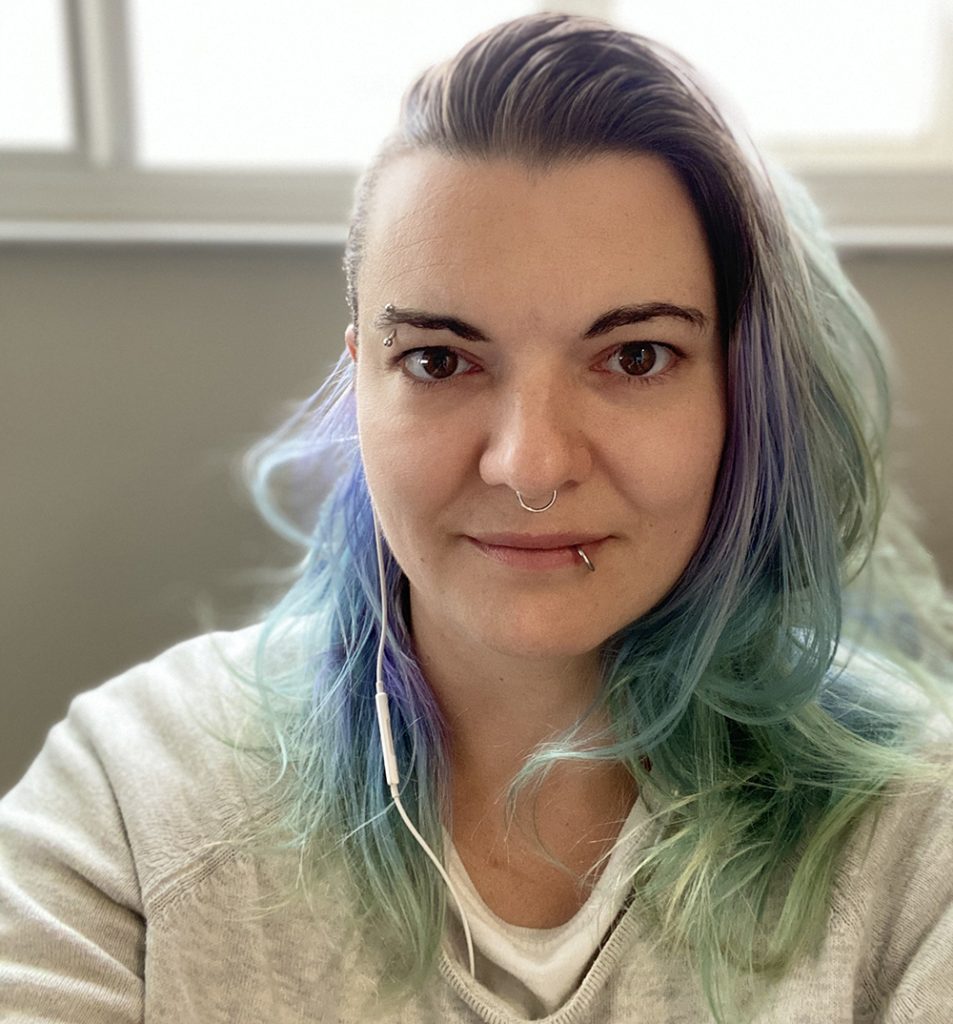
In the latest edition of our Staff Profile series, we spoke to Dr Alice Denton about her “obsession” with fibroblasts, the day-to-day challenges of her role and pea-flavoured (!) gin
Introduce yourself – who are you and what do you do?
Hiya, I’m Alice, a Lecturer in the Centre for Inflammatory Disease. I am running a small lab working towards understanding how fibroblasts contribute to the organisation of immune responses during vaccination
When did you join the College, and where were you working before this?
I joined Imperial College in January 2020 (great timing!). My career before this was: PhD at the University of Melbourne (2006-2010), then a postdoc at the University of Cambridge (2010-2015) and a BBSRC FL fellowship at the Babraham Institute (2016-2019).
Can you explain a bit more about your research interests and the projects you’re currently working on?
My lab is trying to understand how the environment that immune cells are exposed to influences their function. We are investigating how inflammation alters the phenotype and function of fibroblasts in the lymph node, and how this, in turn, influences the immune cell localisation and behaviour. The long-term aim is to understand how these events early after immunisation might help promote better vaccine responses – this project is funded by an MRC Career Development Award. We are also trying to understand how the ageing process impacts fibroblast function, and we have a Seed Award from the Dunhill Medical Trust to start some new investigations into senescence and how this might alter how fibroblasts are able to support B cell responses.
What initially sparked your interest in your current field of research?
My obsession with fibroblasts comes from working with Doug Fearon at the University of Cambridge – an understudied cell type in the context of immunity, but we’re changing that! My interest in the germinal centre and ageing comes from my time in Michelle Linterman’s group – it’s such an interesting immunological reaction, and understanding this response has important real-world implications in the context of vaccination and an ageing population. My apologies to my PhD supervisors – my original interest in CD8+ T cells has fallen by the wayside, although influenza remains my favourite virus.
What’s the most challenging part of your role?
I guess it’s juggling different responsibilities: teaching, supervising, managing, as well as a little lab work when I can. Luckily, I have a great team and fantastic colleagues, which makes everything so much easier! Getting used to thinking about lots of different things all day has been particularly exhausting.
Where do you see yourself in five years’ time?
Hopefully doing much of the same thing, but slightly more efficiently: convincing students that fibroblasts are super interesting, working with a team of scientists that bring me exciting data, and working with great colleagues to ask – and answer – questions about immunobiology. Oh, and perhaps with more cats.
What are your biggest hobbies/passions when you’re not busy at work?
I tend to bake a lot (endless sourdough bread, less frequent cakes, and cookies). I also like to dabble in art-adjacent activities – currently, this is mostly cartoon-ifying pictures of my cats, but also a little sculpture and drawing here and there.
And finally: what’s one thing you’d like staff in the Department to know about you or your role that we haven’t already covered?
I have distilled my own gin using a friends’ “decorative still”. Pea-flavoured gin is surprisingly delicious.